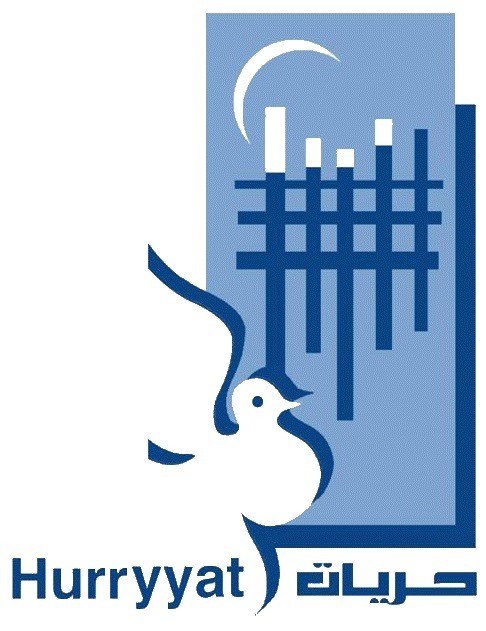The Center for Defense of Liberties and Civil Rights “Hurryyat” organized a conference at the headquarters of the Palestinian Red Crescent Society on Wednesday the 25th of February; that highlighted the damages caused in the lives of thousands of citizens due to the travel banning policy and restricting the freedom of movement that violates the provisions guaranteed by the International Convention of Human Rights and the International Humanitarian Law.
The convention was privileged with the attendance and participation of several personalities many of whom are banned from travel including the Mufti of Bethlehem Governorate Al Sheikh Abd el-Majeed Ata Mohammad Amarneh, the writer Walid Al-Hodali, and the vice president of the General Union of Palestinian Women Nihaya Mohammad Taqla; Other representatives attended the conference including Mr. Maroof Zahran Undersecretary of the Ministry of Civil Affairs, and the representative of the Office of the High Commissioner of Human Rights Mr. Bahaa Al-Saadi. Some of the speeches presented included a speech by the United Nations Development Program (UNDP), sponsor of Hurryyat, presented by Mr. Jihad Shomali, a speech by the Palestinian National and Islamic Forces presented by Dr. Wasel Abu Yousef, member of the Executive Committee of the Palestine Liberation Front, a speech by Mr. Shawan Jabarin representing the Palestinian Human Rights Organizations Council, and a speech by Mr. Helmi Araj representing the Center for Defense of Liberties and Civil Rights.
The conference was introduced by the chairman of Hurryyat, Mr. Taysir al-Zabri, who welcomed the attendance and stressed the importance of such an event. He ended the speech thanking all those who contributed to making this convention possible, and affirmed the need to combine forces at all levels to overcome this case.
The participants posed several demands as follows:
First: Request the international community represented by the Secretary General of the United Nations Mr. Ban Ki-moon, the European Union, and the High Contracting Parties in the Geneva Convention 1949, to intervene against the occupation authorities and end their arbitrary policies and means.
Second: Urge international human rights organization to organize advocacy campaigns pressuring and mobilizing the world public opinion against this policy.
Third: Urge governmental and non-governmental organizations, political fractions and forces, and all those banned from travel to combine efforts in bringing this issue to the surface through a national work plan with the cooperation of international bodies and institutions, making this case a priority.
Fourth: Create sub-committees for those affected by the ban as a prospect of forming a permanent national committee monitoring travel bans through statistics and documentations that prove the gravity of the violations committed regularly and in silence since the occupation.

